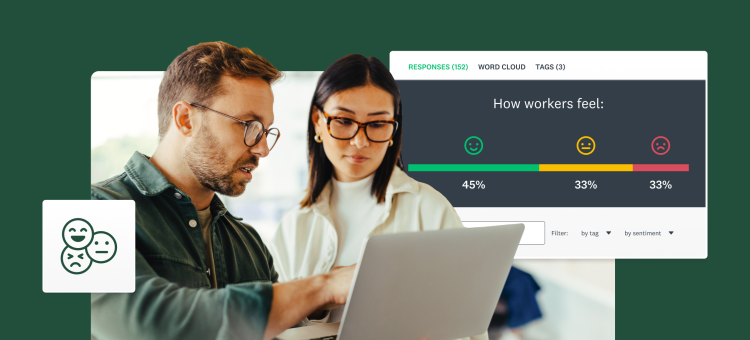At SurveyMonkey, we love to have fun at work. However, when it comes to the security of your data, we never monkey around. We’re always conscious that you are entrusting us with your survey data, some of which is particularly sensitive and confidential, like top secret market research or employee performance reviews. You also might entrust us with the email addresses of your customers, employees, or friends. We’d like to take a moment to tell you a bit about how SurveyMonkey keeps your data secure and private and to reassure you that your trust isn’t misplaced!
Our Privacy Policy describes how we handle your data. We spent of lot of time discussing it amongst ourselves, with our outside lawyers, and even with an independent privacy consultant, in order to come up with one which is comprehensive, transparent, and implements best practices. But don’t just take our word for it. Computerworld decided to review our privacy practices and commented that we “get the nod” for codifying our privacy practices “into clear online disclosures and commitments” and that we take security measures that they saw “Fortune 500 firms taking.”
Because we know you are busy and probably don’t have the time to wade through our entire Privacy Policy, we’ve answered the most common privacy-related questions we get from customers below.
Do you keep my information confidential?
Yes, we regard your survey data and any email lists you provide as confidential to you. We always use your data in strict accordance with our Privacy Policy. This means we don’t inspect your individual survey responses. We don’t contact anyone on your email lists other than to send them your survey. We certainly don’t do any sketchy stuff like sell your survey data or email addresses to marketers without your explicit permission. There are very limited exceptions to this rule, such as when we are ordered by a court to hand over data. Even then, we try to ensure that the disclosure of personal information is kept to a minimum.
We do generate and analyze statistics about surveys in aggregate. For example, we may track how many responses are being collected each month, or determine what the average number of questions in a survey is. We use this for internal planning purposes, like tracking usage patterns so we can ensure that we have enough capacity to handle your needs. We also use this information to improve our features and develop best practices that we can share back with you to help with your own survey creation and analysis methods. For example, we may share information on topics such as completion rates by number of survey questions or by day of week.
We also provide you with the tools to keep your own data as public or private as you want. You can protect your surveys with passwords, so only authorized people can take them. We offer SSL connections to ensure that your respondents’ answers are encrypted when they are submitted. On the other hand, you can also choose to share your survey results with the world.
Is my data secure?
SurveyMonkey takes data security seriously and our IT team has configured our technology infrastructure accordingly. Our Security Statement details the multitude of measures we employ to help keep your data secure, backed up, and always available.
Who owns my survey data?
You do. You retain ownership of your survey data and may delete it at any time. You can also export it in a wide range of file formats to perform your own analysis on it or to make a backup copy for yourself.
Please feel free to let us know if you have other questions on privacy or if there is more we can share about our policies.
Written by Stuart Loh, SurveyMonkey in-house counsel in charge of privacy and policies.



